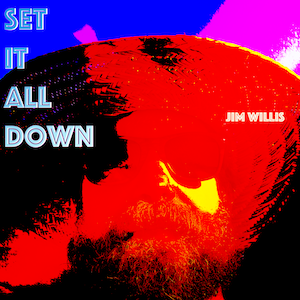I wrote about my appreciation of Alan Jacob’s thoughts on Personal Density several years ago when I first came across his writing.
My Readwise app recently resurfaced some of my initial highlights from that piece:
Breaking Bread With the Dead by Alan Jacobs, highlighted by Jim
Here’s a brief recap:
In Thomas Pynchon’s Gravity’s Rainbow (1973), an engineer named Kurt Mondaugen enunciates a law of human existence: “Personal density … is directly proportional to temporal bandwidth.” The narrator explains: “’Temporal bandwidth’ is the width of your present, your now. … The more you dwell in the past and future, the thicker your bandwidth, the more solid your persona. But the narrower your sense of Now, the more tenuous you are.”
I’ve listened to several episodes of the How to Keep Time from the folks at The Atlantic and had really high hopes for it. The focus of the podcast was on our relationship to time and how to reclaim it. Not for lack of effort on the parts of the hosts, but the podcast never really hit the mark for me. I’m not sure what I would have changed to make the first few episodes more interesting or relevant but their last episode, Can We Keep Time? really fell flat for me.
The reason it fell flat only became apparent to me after Readwise resurfaced the Jacobs quote on Personal Density. In the last episode the hosts dig into why we track things in our lives and ask Do photos, social posts, and diaries actually help us remember better?
It feels like they really missed an opportunity to me. The hosts focussed on “oh, I take too many pictures” instead of addressing one of the key merits of journaling, especially modern journaling (like Day One for example) that allows you to revisit your “On This Day” X years ago entries every time you go ahead and writ in your journal.
Every day when I write in my journal, I’m looking at nearly 20 years of previous entries. I don’t have an entry for every year for each day but most days I have a few entries. A few entries from the last four or five years, then an entry from 10 years ago then another from 15 years ago. Reading these earlier entries gives a certain feeling of rootedness.
This, to me, is how I understand my relationship to time, how to reclaim it and more importantly, to understand how I’m using time. These earlier journal entries help me stay rooted in time, at least from the perspective of how I’m changing as an individual. Sometimes it can be totally disorienting to read an entry from years earlier and not completely recognize any of myself in the author of the entries. Other times, it’s equally disorienting to see how little I’ve changed over time, especially w/r/t the inventory of things that cause me anxiety or stress.
My journal entries are valuable because there are times I feel my autobiographical memory isn’t dense enough to hold me in place while I try to gain perspective on my relationship to time.

